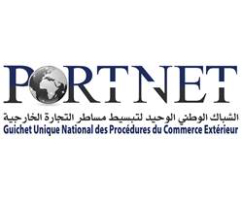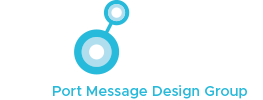 Money can’t buy friendship, but friendship can certainly deliver value! That’s the clear message from a discussion with Youssef Ahouzi, interim CEO and CIO of PORTNET S.A. about the benefits of belonging to the International Port Community Systems Association (IPCSA).
Money can’t buy friendship, but friendship can certainly deliver value! That’s the clear message from a discussion with Youssef Ahouzi, interim CEO and CIO of PORTNET S.A. about the benefits of belonging to the International Port Community Systems Association (IPCSA).
The Moroccan National Single Window, PortNet has been an enthusiastic and proactive member of IPCSA for many years. Even in the past 18 months of Covid-19, the benefits have been clear, says Youssef.
“IPCSA is a family, in all that we do. Even when we have not been able to have physical meetings during the pandemic, we have had online conferences, kept in contact, and achieved a lot. I hope when the pandemic ends, we can share some special time with our friends and family in IPCSA; I think it is very important that we continue to share our experiences in a friendly way.”
Single Window Operators can gain a great deal through the IPCSA approach, says Youssef. “We are all working with the same problems – we may be doing things differently, but we have a sort of telepathy and understand each other perfectly. The way we work in IPCSA is really interesting and informal. You share your experience and you are understood and helped. You can have a question and get an answer. You can find out about best practices in similar situations, and you can have support in doing your work.”
PortNet is a sophisticated National Single Window which also incorporates a Port Community System and (air) Cargo Community System. It has transformed Morocco’s import/export activities and continues to expand its influence.
First deployed at Casablanca by the National Ports Agency ten years ago, PortNet has more than 52,000 customers and provides more than 120 digital services to around 61,000 users throughout Morocco.
around 61,000 users throughout Morocco.
Last year, PortNet in partnership with its stakeholders launched a series of new services designed to make the import/export supply chain practical, integrated and digital. These included paperless heavy packages declarations, waste declarations, berthing requests and import/export manifests. The PortNet system is continually refined – for example, there were updates in 2020 to position assignment requests, and to dangerous goods, special goods and export manifest declarations.
In 2021, PortNet has introduced a slot management system in Casablanca, and it is working with banks to launch a finance platform by the end of the year. Work is also progressing on new modules with Customs and operators.
Within IPCSA, PortNet is involved in the Network of Trusted Networks (NoTN) initiative to provide a new, secure port-to-port and cross-border data exchange solution providing predictability, visibility and certainty within the supply chain.
“This project is very important for us because it meets our vision of being a unique platform for our traders, so they can have information about their whole trade operation, including information about their goods in other ports and from other PCSs,” says Youssef. “One of our strategic visions as PortNet is to give our customers visibility as to where their containers are – not only in the port but throughout the supply chain.”
He says IPCSA gives Single Window Operators such as PortNet new ideas and new ways of doing the same things, “sharing experiences all about procedures and ports”.
“We can adapt those experiences to our environments and communities. As members, we are happy to share what happens here in Morocco and how our system works – this is our contribution to IPCSA.”
Being in touch with members from around the world provides access to best practice, examples, he adds: “You can see what problems they have faced when working on implementing their Single Window systems. It gives you a way you can avoid facing the same problems. It gives you experience as to how people will react to digitalisation and how you can handle difficult questions from the community.”
However, he says, no two systems are ever the same. “You can have the same platform, but you must focus on what is happening in your environment, your community. You need to establish what they want, and what the objectives and vision are, so you can implement a Single Window that will fit with the community.”

IPCSA also brings benefits to members through its connections with international organisations, he adds – that includes keeping up to date with regulations, technology and standards.
As IPCSA evolves and membership numbers grow, this will add new opportunities to learn from different experiences, says Youssef. “I also look forward to further integration between these Single Windows and Port Community Systems, and to global links. We have an experience of this integration – in future, IPCSA will play a main role in defining how this can happen. Also, IPCSA is in an excellent position to define the best practices for implementing PCSs and deliver a best practice framework – we have the legitimacy for this.”
Finally, he says, much of IPCSA’s success is down to members who enjoy sharing good times together. “Members become like friends first – and you can learn a lot from that. Of course you can pay for consultancy services from big companies, but that is different from what we can gain from IPCSA members. Of course you can buy expert advice but that is not like having someone who will really share with you what are the best practices and what he or she has done to implement them. I think IPCSA is unique in this.”



